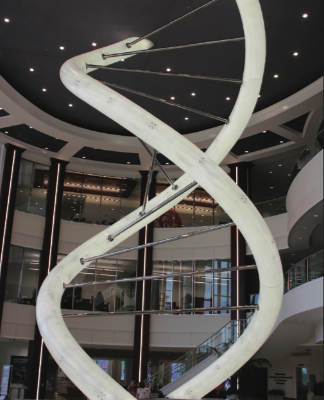New initiative to help educate future experts and support donors

By Nick Bainbridge// News Editor
High Point University’s “Willed Body Program” is an initiative to facilitate the donation of deceased bodies to the university.
Anatomy is a complex subject, and students in medical fields need to be able to learn as much as they can about the human body to ensure that they will perform quality work when lives are at stake. For this, the Congdon School of Health Sciences features a state-of-the-art laboratory for educational purposes.
Graduate students will be able to further their comprehension of the human body, giving them insight that will be put to use when they pursue their profession in the future, whether it be as a physical therapist, a physician assistant or a pharmacist.
Furthermore, the Willed Body Program plans to use the donated cadavers in the training of emergency professionals such as military personnel.
Educating students is not the only purpose of these donations. The program purports to be involved in the development of new treatment techniques for medical professionals through the careful study of the donor’s remains.
Due to the sensitivity of the work, the Willed Body Program allocates its resources to ensuring that cadavers are handled in an ethical and respectful manner.
“We don’t ever lose sight of the fact that our donors were once someone’s daughter or son, brother or sister, mother or father.” Explained Amanda Mittelstadt who spearheads the operation as its director.
To fulfill this maxim, the Willing Body Program has several guidelines to ensure proper treatment of the deceased and avoid increasing the burden on their relatives.
The program features complimentary transportation for nearby locations and manages some of the paperwork needed for the moving of bodies. The system also takes on the responsibility of lending supports by providing aid for funeral costs to some families.
The bodies are in experienced hands while they are with the program as well. Both director Amanda Mittelstadt and assistant director Rumeal Ferguson have each been a part of the funeral industry for over a decade, with the latter being notable for possessing the prestigious Certified Funeral Service Practitioner designation, showing that he is well versed in the handling of corpses.
The facility may keep the bodies for a variable amount of time due to different circumstances, with some only being used for a handful of weeks, but the program asserts that it will ensure that bodies receive proper rest at most 2 years after the donation.
After the term of the donation is over, cadavers will be transported to a local, state-sanctioned crematorium, where they will be cremated properly.
The respect for the deceased does not end when the bodies leave HPU. The managers of the program wanted to ensure that donors are remembered because of the service they are providing. Congdon Hall houses HPU’s “Tree of Life,” where the names of donors are to be engraved to commemorate their help to the program.
The Willed Body Program is open to able adults who want to help facilitate the education of future medical professionals; however it is a mutually exclusive initiative from being an official organ donor, as the program requires the entire body.